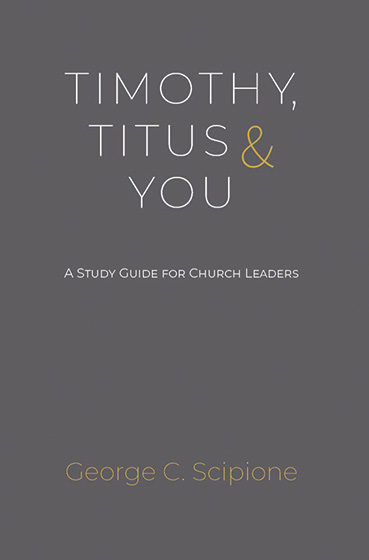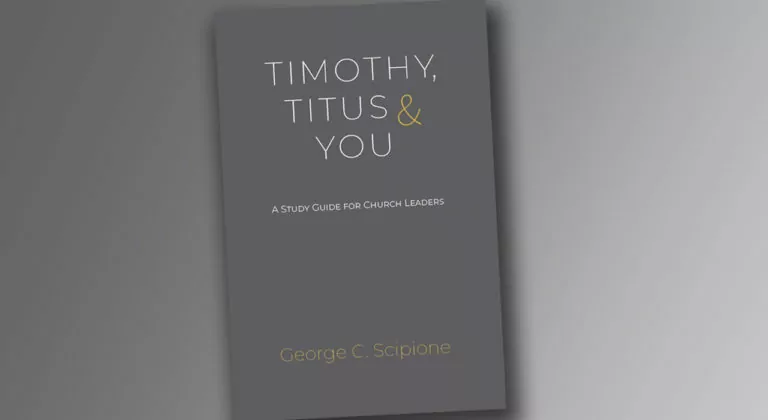by George C. Scipione
55 pages / 2018 (originally 1975)
Crown and Covenant Publications
Many Bible study books are full of questions. Questions can be good. Questions are the backbone of serious Bible study. But questions, once answered, often get forgotten. Having sat through a few Young Peoples’ bible study meetings in at least two different Canadian provinces I have seen this firsthand. The book is opened. The first question is asked. It is answered. The second question is asked. It is answered. And so on. I have even seen good discussion cut short because ‘we need to get through the questions.’
This Bible study book is also full of questions. However, its target audience is not Young Peoples’ Societies, but Church leaders. Specifically, the author envisions this study guide to be used by elders and potential elders both in their leadership role in the church and as they prepare for such a role.
Designed to be used over a nine-month period, the guide has four major goals for the reader in each lesson:
- To gain knowledge of 1 and 2 Timothy and Titus – Questions get readers thinking about each assigned Biblical passage, and about its application to their lives.
- To examine himself– Learning about God moves us to learning about ourselves and learning about the role of church leader.
- To grow in self-discipline– Prompts and assignments encourage readers to transform their lives.
- To consider how to lead others– Self-discipline is the beginning, but leadership involves learning how to disciple others.
Positives
Given that this study guide is intended for those in or aspiring to leadership in the church, the questions are well focused and most likely to be taken seriously. Drawing their inspiration from the passage of Timothy or Titus, the questions seek to apply the lessons learned to the leadership and life of the reader. Some are deep, probing questions that get at motivations and attitudes. Some are questions that get at behaviors and actions. All the questions are clearly connected to the Biblical passage at hand.
Taken seriously, and done thoroughly, this guide could be a good way for an elder or someone who aspires to be an elder to grow both in personal holiness and their role in the church.
Negatives
Having read through this guide, I don’t really know much more about Timothy and Titus than I did before. This is because the guide is heavy on personal and leadership application, but short on actual Biblical exposition. Even in the “Knowledge of the Word Study Questions” section in each chapter, the questions are exclusively “you” focused. The author leaps over original context, intended meaning of the author, and application to the first audience, and lands squarely on what the text means for me now.
This is why I am a little hesitant about contemporary study guides. Too many of them are heavy on questions that are of more interest to the reader (or user) of the guide, and light on questions that get at the meaning and original application of the text itself. Issues of context, definitions, and even themes are absent in this study guide, issues which could have strengthened the application questions and made them more meaningful.
Conclusion
This, then, was a good leadership book, but not a great bible study book. The author truly wishes to encourage and assist his readers in their role as leaders in the church. The questions and exercises are serious, probing, and show faithfulness to Scripture and its authority. However, the fact that there is little exposition, and the questions focus too heavily on application to the reader is unfortunate. While useful as a means for elders and those aspiring to this office to grow and prepare, it is not quite a “study guide” in the traditional sense of reading and learning about the Biblical text itself.
So use this study guide with a group of leadership-minded men to focus and assist discussion. But have a commentary on Timothy and Titus on hand as well to study the text itself.












